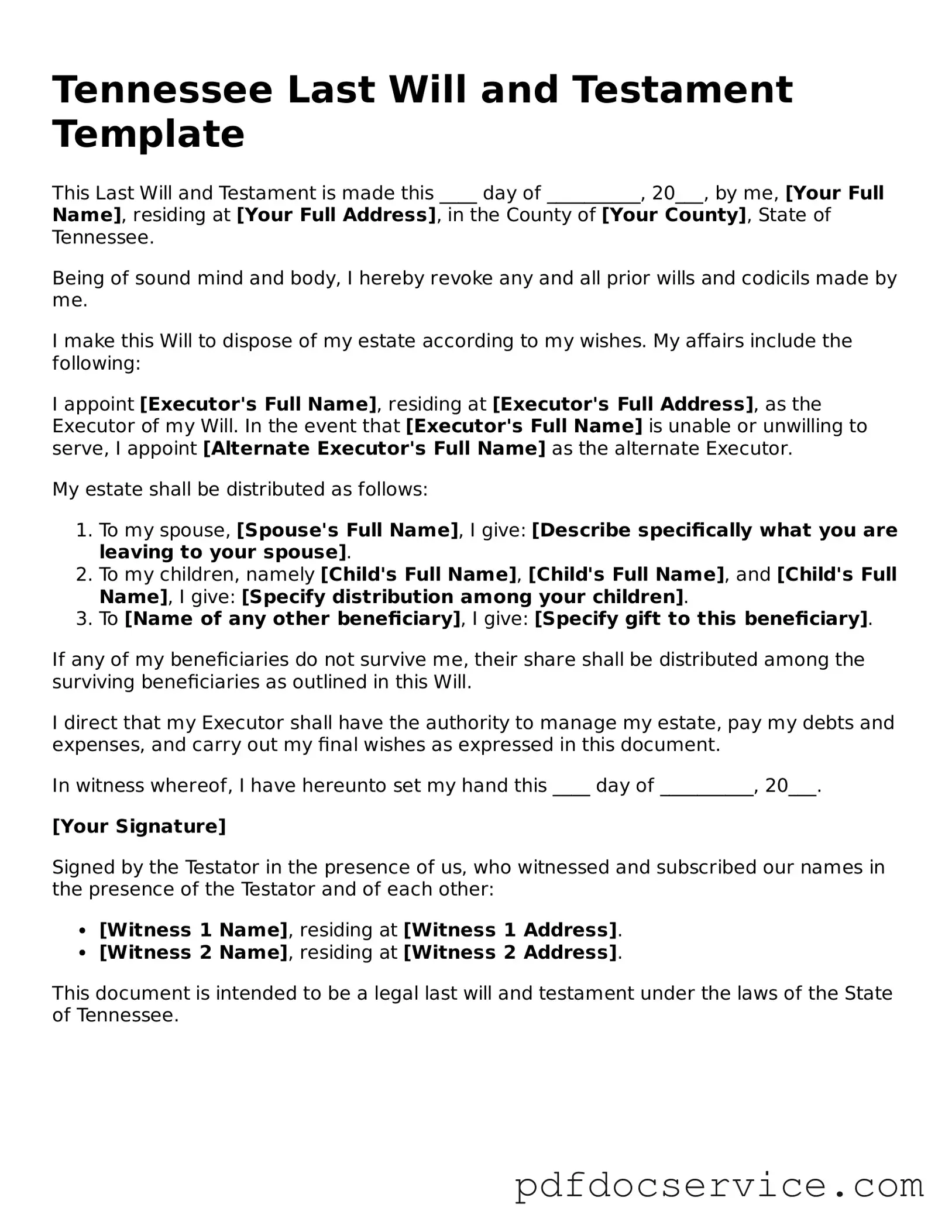What is a Last Will and Testament in Tennessee?
A Last Will and Testament is a legal document that outlines how a person wants their assets distributed after their death. In Tennessee, this document can also specify guardianship for minor children, funeral arrangements, and other important matters. It ensures that your wishes are honored and provides clarity to your loved ones during a difficult time.
Who can create a Last Will and Testament in Tennessee?
In Tennessee, any person who is at least 18 years old and of sound mind can create a Last Will and Testament. This means you must understand the nature of your actions and the consequences of your decisions. If you are a minor or deemed incompetent, you cannot create a valid will.
What are the requirements for a valid Last Will and Testament in Tennessee?
To ensure your will is valid in Tennessee, it must meet the following requirements:
-
The document must be in writing.
-
You must sign the will or have someone sign it on your behalf in your presence.
-
At least two witnesses must sign the will, affirming they witnessed you sign it or that you acknowledged your signature.
Can I change or revoke my Last Will and Testament?
Yes, you can change or revoke your Last Will and Testament at any time while you are alive and competent. To make changes, you can create a new will or add a codicil, which is an amendment to the original document. If you wish to revoke your will, you can do so by destroying it or stating your intent to revoke in writing.
What happens if I die without a will in Tennessee?
If you die without a will, you are considered to have died "intestate." In this case, Tennessee law dictates how your assets will be distributed. Generally, your property will go to your closest relatives, such as your spouse, children, or parents, following a specific order of priority. This process can lead to outcomes that may not align with your wishes.
Can I include specific bequests in my Last Will and Testament?
Yes, you can include specific bequests in your will. This means you can designate particular assets or amounts of money to specific individuals or organizations. For example, you might leave a family heirloom to a child or a sum of money to a charity. Clearly outlining these bequests helps avoid confusion and ensures your intentions are clear.
Is it necessary to hire a lawyer to create a Last Will and Testament in Tennessee?
While it is not legally required to hire a lawyer to create a Last Will and Testament in Tennessee, it is advisable. A legal professional can help ensure that your will meets all legal requirements and accurately reflects your wishes. They can also provide guidance on complex issues, such as tax implications and estate planning strategies.

